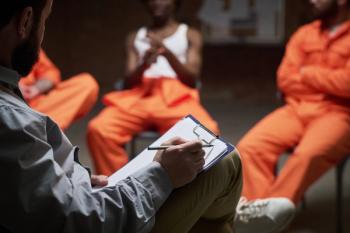
False Allegations of Sexual Abuse
Here’s how to distinguish false allegations of sexual abuse.
COMMENTARY, FORENSIC PRACTICE
All allegations of sexual abuse by children must be taken seriously. Data suggest that the overwhelming majority of children’s allegations are legitimate and true.1 But, in certain situations and circumstances, a child may lie and make up false allegations of abuse. This phenomenon is seen most commonly in child custody cases and in criminal cases.
Reasons for Lies
As a clinical and forensic psychologist, I am often enlisted to help a parent prove his or her innocence in a
1. Children sometimes make up allegations of sexual abuse because they are looking for attention. When children feel neglected by their parents, they may be inclined to fabricate a story of sexual abuse because they know it will bring them attention. With some kids, negative attention is better than no attention at all. Young children and even teens will make up a story of sexual abuse without understanding the serious custody or criminal implications for the parent in question.
2. A child who is angry with a parent may decide to accuse that parent of sexual abuse. For example, a child might be mad at a parent for seeking a divorce, or for real or perceived favoritism of a sibling.
3. Children, particularly those embroiled in dysfunctional family situations, sometimes falsely report sexual abuse to have the accused parent removed from the child’s life. For example, a girl who has a rocky relationship with her father or stepfather may accuse him of sexual abuse to remove him from the family because of his verbal hostilities, drug abuse, or overly harsh discipline.
4. In contentious child custody cases, a child may fabricate a story of sexual abuse against one parent at the encouragement of the other parent who
5. Some children make up a story of sexual abuse against a parent to “explain away” their own sexual misbehavior or other inappropriate actions. For example, a child might accuse a parent of sexual abuse who has recently discovered that the child has been sneaking out of the house to have sex. Or a child might lie about parental sexual abuse after being arrested for shoplifting.
Red Flags for Detecting Children’s False Claims
In every case of alleged sexual abuse, the mental health expert must approach it with an open mind.3 All possible hypotheses should be explored; tunnel vision must be avoided. It is imperative to consider all available evidence to either corroborate or refute the claim of sexual abuse. While most claims of sexual abuse are true from a statistical standpoint, some are lodged falsely and must be exposed. In a
There are several red flags that point to a false allegation of sexual abuse by a child. These include:
1. In a forensic interview, a sexually abused child is typically anxious, scared, worried, conflicted, ambivalent, and prone to recantations. In contrast, a child who is calm, cool, collected, and smooth may be fabricating the allegation of abuse.4 While this rule of thumb holds true, there are of course exceptions.
2. A timeline of events and actions will often reveal a fabricated allegation. An allegation of sexual abuse that occurs within days or a few weeks of a major event can reflect a fabricated story. For example, I had a case where an allegation of sexual abuse occurred within 72 hours of a husband asking for a divorce. The wife was shocked and scared of losing custody of their 3 children. The allegation of abuse was lodged to gain leverage in the child custody battle that was imminent.
3. If the first allegation of sexual abuse occurs during a divorce and/or child custody proceeding, a fabricated story should be considered. If multiple allegations are made during the proceeding, that is a huge red flag for fabrication.5
4. If it is well-established that a child is being manipulated or coached by a parent, that child’s allegation of sexual abuse against the other parent must be scrutinized. As mentioned earlier, children and teens are easily manipulated by a parent and can be unwitting participants in a false allegation claim.
5. If the parent in question does not have a prior history of inappropriate sexual activity, criminal behavior, or serious substance abuse, it is more likely that the current allegation of sexual abuse is false.
6. If the child or a member of the family has a history of making previous similar allegations of abuse against others, it is more likely that the current allegation claim is false.
7. Some children, especially younger ones, will believe sexual abuse happened to them if they are repeatedly asked leading questions by a parent, investigator, or evaluator. Children want to please authority figures and will take their cues from them. In such circumstances, very young children have a difficult time distinguishing fact from fantasy.6
8. Sometimes a parent will misconstrue or misinterpret what a child says and then magnify it into an act of sexual abuse. This happens with younger children most often. For example, if a father touches a young child’s “private parts” while giving a bath.7
Concluding Thoughts
As I have encountered first-hand in cases, most adults find it implausible that a child would make up a false allegation of sexual abuse against a close or extended family member. Attorneys, mediators, district attorneys, judges, and even mental health practitioners make the mistake of taking a child’s word at face value without careful determination of its truthfulness.
False allegations of abuse by children do happen in both custody and criminal cases. Children lie for a variety of reasons and those reasons must be exposed. That is the task of the mental health professional in such a case.
Finally, it is also important to note that the number of false allegations of child sexual abuse is lower than the number of children who do not disclose such abuse or who lie by saying it did not occur.1 To be clear, sexual abuse of children continues to be a major problem and we must not turn a blind eye to the enormity of the psychological damage to our youth.
Dr Blotcky is a clinical and forensic psychologist in private practice in Birmingham, Alabama. He is also clinical associate professor in the department of psychology at the University of Alabama at Birmingham. Dr Blotcky can be reached at alanblotcky@att.net.
The opinions expressed are those of the author and do not necessarily reflect the opinions of Psychiatric Times™.
References
1. Cyr M, Bruneau G. False allegations of child sexual abuse. In: St-Yves M, Tanguay M, eds. The Psychology of Criminal Investigations: The Search for the Truth; 2008:199-228.
2. Ceci SJ, Bruck M.
3. London K, Bruck M, Ceci SJ, Shuman DW.
4. O’Donohue WT, Fanetti M. Forensic Interviews Regarding Child Sexual Abuse: A Guide to Evidence-Based Practice. Springer International Publishing; 2016.
5. Blotcky AD. Child abuse allegations: sorting out lies versus truths. Psychiatric Times. August 25, 2021.
6. Hughes-Scholes C, Powell MB.
7. Bernet W
Newsletter
Receive trusted psychiatric news, expert analysis, and clinical insights — subscribe today to support your practice and your patients.







